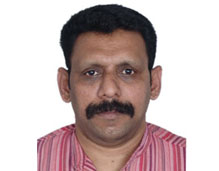Is Kerala Emerging as India’s New Terror Hub?
Not many in the security establishment would like to believe so. A state known for its religious diversity and secular fibre, Kerala also has a sensitive communal melange with conflicting interests holding stake over its political and social institutions. To an average security analyst in Delhi, the ominous trends of subversive activities in this farthest nook would not be as apparent as similar events in Aurangabad or Meerut.
- Published: August 22, 2006









